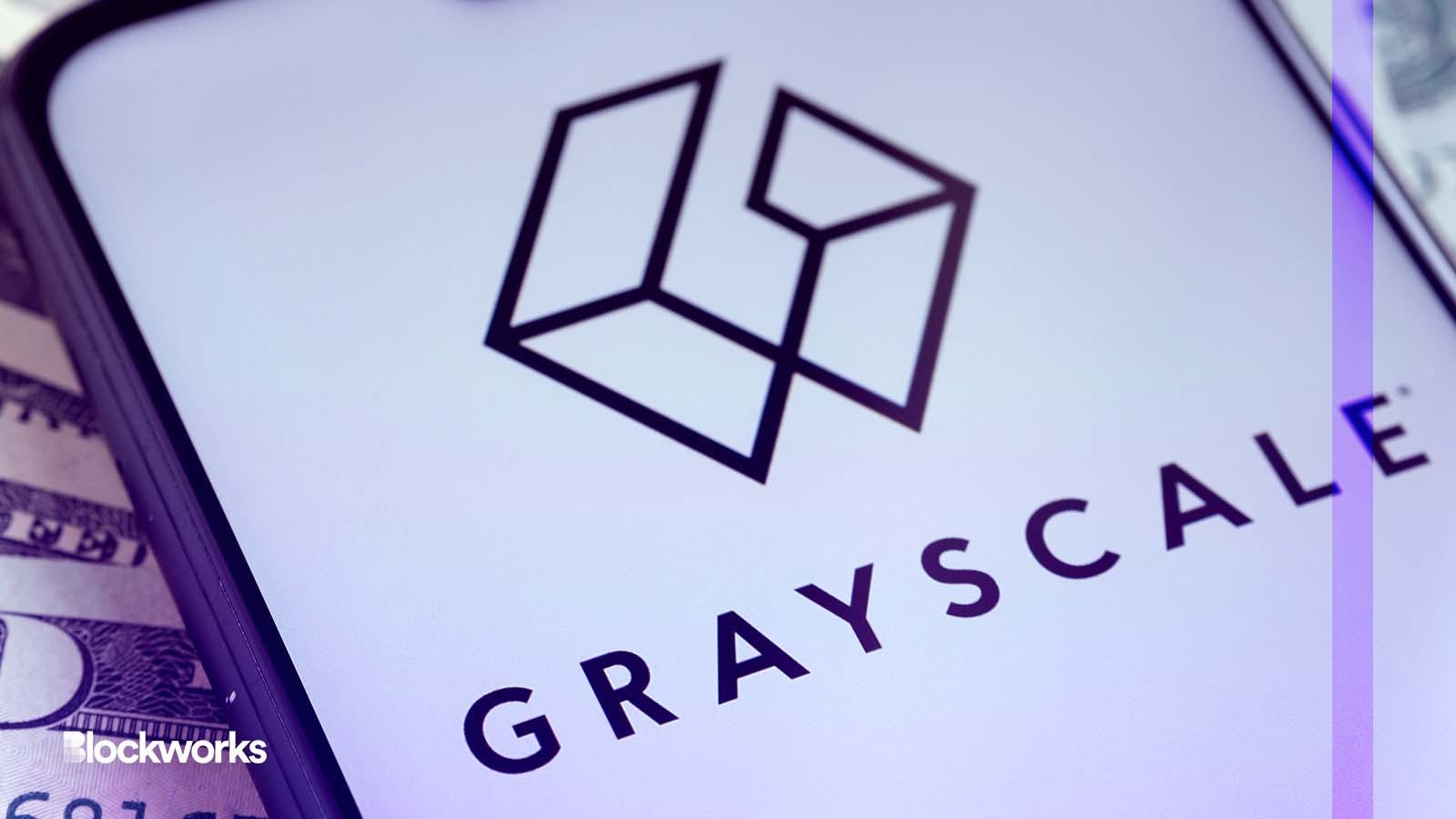What does the BlackRock bitcoin ETF filing mean for Grayscale?
GBTC’s price recently surged following news of BlackRock’s ETF application and a number of institutional-scale filings

Ascannio/Shutterstock modified by Blockworks
The recent news of BlackRock filing for a spot bitcoin ETF seems to have sparked considerable excitement in what has otherwise been a miserable crypto market. Some are even saying it marks the beginning of a new “crypto summer.”
“What do you think is going to benefit the most from that?” asks Avi Felman.
The head of digital asset trading at GoldenTree answers his own question: “There’s this great instrument, GBTC.”
If Grayscale were to succeed in being turned into an ETF, following BlackRock’s lead, it could be a “great trade,” says Felman.
“It is currently trading at a 33% discount,” he says.
Speaking to Cumberland’s Global Head of Trading Jonah Van Bourg on the 1000X podcast (Spotify/Apple), Felman explains that GBTC shares sell at a discount compared to their underlying bitcoin assets, enabling some interesting opportunities.
GBTC sells at a lower price than the underlying BTC due to the fact that Grayscale, while it aims to exist as an ETF, is currently structured as a trust and does not provide asset redemption of its shares. As a result, supply and demand dynamics can cause the price of GBTC to deviate from the value of BTC.
While currently trading at a discount, the shares have been priced at a premium in the past. Some traders prefer to avoid the risks of directly custodying the digital asset, instead leaving the job to Grayscale. Twelve-word mnemonic phrases and hardware wallets don’t seem to suit the institutional vibe.
Converting the trust into a spot ETF could reduce pricing deviation by enabling 1:1 equivalent redemption between the shares and bitcoin, but the Securities and Exchange Commission rejected the company’s 2022 application, sparking a lawsuit that is not yet resolved.
GBTC’s price recently surged following news of BlackRock’s ETF filing and a number of subsequent institutional filings. Van Bourg expresses caution against banking on the discount, warning that GBTC will likely sell off again “at some point.”
The reason for Van Bourg’s hesitancy, he says, “is DCG” — Grayscale’s owner. “We don’t know if the managers of DCG are economically rational” or if they are more driven by “reputational” concerns.
Grayscale doesn’t have to compete
“In theory,” Van Bourg explains, “the textbook says they should just do nothing.”
“Whatever the price of GBTC does, it doesn’t change the amount of fees that Grayscale collects. It’s really just the price of bitcoin going up and down that alters their fee.”
“They collect 2% of the bitcoin held in the fund every year.”
While BlackRock is filing for an ETF, Grayscale doesn’t really have to compete with them, according to Van Bourg. “Even if the price of GBTC gets fire-sold down to a discount of minus 90%, technically, they’re still collecting those same fees.”
If a BlackRock ETF were to be approved, Grayscale might be better off eventually buying their own shares back at a deep discount, Van Bourg suggests. BlackRock could clear a regulatory path, after which Grayscale could convert their trust into an ETF.
“That would be a scummy thing to do to your investors,” he says, “but if you’re just purely economically rational, that might actually make sense to do that.”
“There is some risk to the downside there.”
Felman argues that the probability of such a move is “extremely low” due to legal and reputational implications.
“They’re trying to build a business,” he says, “as opposed to generating a lot of cash in the short-term and then opening themselves up to legal liability.”
“That being said, a lot of people have done a lot of worse things in crypto,” Felman admits.
“Let’s say you’re managing GBTC and BlackRock comes out with a product that’s infinitely superior,” Van Bourg says.
Grayscale investors will rotate into BlackRock, he argues, leaving the company little choice but to allow the redemption of GBTC shares. “GBTC is going to get redeemed and the assets are going to get rotated into something more institutional.”
Get the news in your inbox. Explore Blockworks newsletters:
- The Breakdown: Decoding crypto and the markets. Daily.
- 0xResearch: Alpha in your inbox. Think like an analyst.






